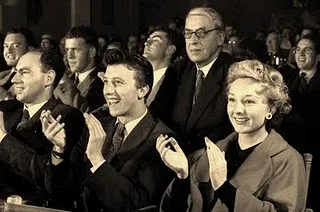Before you start planning what to present, you should know your audience first.
Just like stand-up comedians or singers, without an audience, they have no show.
The audience's attitudes, responses, reactions and feedback determine the success and the failure of a presentation.
One important reminder to all presenters is, you cannot expect to please all the audience all the time.
What you can do is put the message across in the most suitable way that involves the participation of the audience.
As long as you get them to think, react and get them to discuss, eager to find out more or take certain courses of action.
Importance Of Knowing Your Audience
An effective presentation must leave each member of the audience feeling that they have learned something that is useful to them, and they know what to take specific action next.
And most importantly, your expected objectives must be met.
To achieve that, you as the presenter need to know as much as possible who your audience is, then you can tailor and target your key message to them.
For instance you need to know how familiar the audience is with your topic.
Finding out what your audience already knows can improve your rapport and with them and it also helps to reduce your nervousness on the day of your presentation.
Audience Demographics
Try to get additional information if you can.
Anything you can find out about your audience can help you to prepare a more relevant and effective presentation.
Not just their age group, language competency, but even their favorite sports, likes, dislikes, prejudices, personal jokes, etc.
Even on the day itself, you can still manage to get some information through interaction at the beginning of your talk, and by making some minor modifications during the presentation.
One good idea is if you already know some key people in the audience, you can use them (address their names) in your opening comments or simple closed-ended question to gain rapport with the audience.
The more you know about your audience, the better chance for you to succeed in delivering an effective presentation.
There are times when the presenter is not really that great or his material is not that compelling, yet the audience love it.
It is because the audience feels there is good communication, so they will listen and enjoy the presentation.
Knowing and understanding the audience is one of the key tips of achieving persuasive presentation or effective speech.
